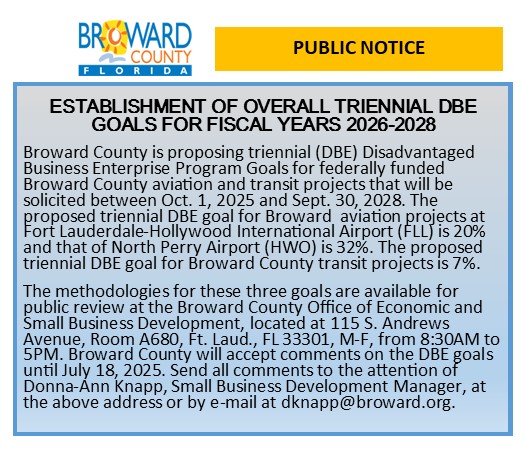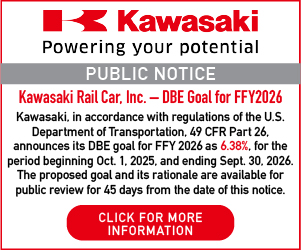WASHINGTON (May 30, 2025)—A coalition of minority business advocates is opposing the Trump administration’s effort to dismantle the U.S. Department of Transportation’s (USDOT) Disadvantaged Business Enterprise (DBE) program, a $37 billion federal initiative designed to ensure equitable access to transportation infrastructure contracts for minority—and women-owned businesses.
In a significant legal development, the Airport Minority Advisory Council (AMAC) announced that on May 21, the U.S. District Court for the Eastern District of Kentucky granted AMAC and a coalition of organizations—now formally recognized as the “Intervenors’—the right to intervene in the high-stakes lawsuit Mid-America Milling Company v. USDOT.
The Intervenors include the Minority Business Enterprise Legal Defense and Education Fund (MBELDEF), AMAC, and the National Association of Minority Contractors (NAMC), Women First National Legislative Committee; Women Construction Owners & Executives, Illinois Chapter; Atlantic Meridian Contracting Corp.; and Upstate Steel. “This is a decisive victory for equity in public contracting,” said Eboni Wimbush, AMAC President and CEO. “Our voices and those of the businesses we represent will be heard.”
Two Indiana-based white-owned companies, Mid-America Milling Company and Bagshaw Trucking Inc., originally brought the lawsuit claiming the DBE program’s race- and gender-conscious components violate the equal protection clause of the Constitution. The suit seeks to eliminate federal contracting preferences established by Congress in 1983 and reaffirmed under President Biden’s 2021 Infrastructure Investment and Jobs Act. In September 2024, U.S. District Judge Gregory Van Tatenhove issued a preliminary injunction, partially blocking the program in Kentucky and Indiana. On May 28, 2025, the Department of Justice—now operating under the Trump administration—joined the plaintiffs in filing a proposed consent decree that would end race- and gender-based criteria in nationwide DBE contract awards.
If approved by the court, the consent decree would prohibit USDOT from using race—or gender-conscious measures in administering the DBE program, fundamentally altering its framework. It would mark the first time since the program’s inception that race—and gender-neutral criteria alone would be used to determine DBE eligibility and participation goals. The consent decree would require USDOT to implement a nationwide race- and gender-neutral DBE policy. States and local transportation agencies administering the program would be forced to remove contract participation goals based on disadvantaged business certification.
Consequently, all race—and gender-conscious benchmarks currently used in federally funded contracts would be invalidated. Critics argue that such changes would dismantle the core structure of the DBE program and severely reduce access for the very businesses the program was created to support. Crucially, this proposed settlement was filed without prior consultation or notification of the newly recognized DBE intervenors. In response, the DBE-Intervenors filed a formal Notice of Intent to oppose the motion on May 29, signaling a significant legal challenge ahead. “We will not stand by while others attempt to quietly unravel decades of progress,” Wimbush said in AMAC’s official statement. “We are in this fight; we have a voice, and we will be heard!”
The DBE program requires that at least 10 percent of USDOT-funded contracts be awarded to businesses owned by socially and economically disadvantaged individuals. Over 49,000 firms nationwide rely on DBE certification to access highway, aviation, and transit construction opportunities. Sheila Jordan, CEO of Atlanta-based Knowledge Architects, said roughly 70 percent of her business depends on DBE-related contracts. “If the program is eliminated, it would be devastating,” she told The Atlanta Journal-Constitution on May 28. “We are already at a disadvantage without this program.”
Civil rights and business advocacy organizations argue that systemic inequities persist in federal contracting. The DBE program remains one of the few mechanisms ensuring diverse participation in multibillion-dollar infrastructure projects.
What’s Next for the DBE Program?
Attorney Colette Holt, a leading expert on public contracting and DBE programs, emphasized that the proposed settlement would not eliminate all tools available to agencies seeking to promote equity. “It appears that the proposed settlement would not remove recipients’ ability to use race- and gender-neutral measures, such as small business elements or improved procurement processes,” Holt said. “This will allow agencies to stand up robust SBE elements, such as mandatory subcontracting or even target market opportunities. Organizations should get ready immediately to enhance what they have or implement these new approaches to stem the losses that will follow from the elimination of DBE contract goals.”
The court has not yet approved the consent decree. The Intervenors have requested time to file a formal response, and hearings are expected over the coming weeks. If the consent decree is approved, USDOT would be compelled to implement a revised, race—and gender-neutral DBE framework. This would likely lead to a dramatic shift in how agencies set participation goals, how firms are certified, and how state and local transportation agencies administer their procurement processes.
In the meantime, the current DBE program remains in effect for all federal contracts except in the 25 states where the plaintiffs have expressed a desire to seek contracts. Contracts in these states are impacted only if the plaintiffs formally indicate interest in bidding. Contracts in states where the plaintiffs have not identified a specific interest remain unaffected. DBE-certified firms should continue to engage with their local certifying agencies, pursue contract opportunities, and stay informed about legal developments and possible adjustments to program implementation.
“Today’s decision helps ensure that the voices of minority- and women-owned businesses will be heard in a case that directly threatens their opportunity to participate fairly in federally funded transportation work,” said Brooke Menschel, Senior Counsel at Democracy Forward. “With this ruling, the court has recognized what’s at stake—not just for these businesses, but for the longstanding principles of redressing past discrimination in our economy.” AMAC, its coalition partners, and thousands of DBE-certified firms nationwide are preparing for a protracted legal battle as the case unfolds.
[end]
Sources:
– “Trump administration seeks to dismantle DBE program” – The Independent, May 28, 2025
– “Federal judge grants AMAC and coalition partners right to intervene in DBE lawsuit” – AMAC Press Release, May 30, 2025
– “Trump DOJ files consent decree to end minority contracting rules” – Reuters, May 28, 2025
– “Minority-owned firms brace for impact as DBE program faces rollback” – The Atlanta Journal-Constitution, May 28, 2025
– Democracy Forward statement, May 2025















